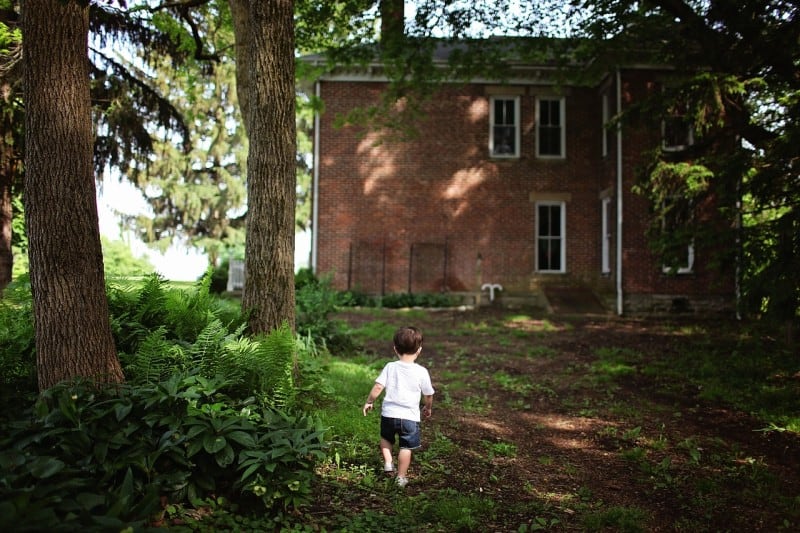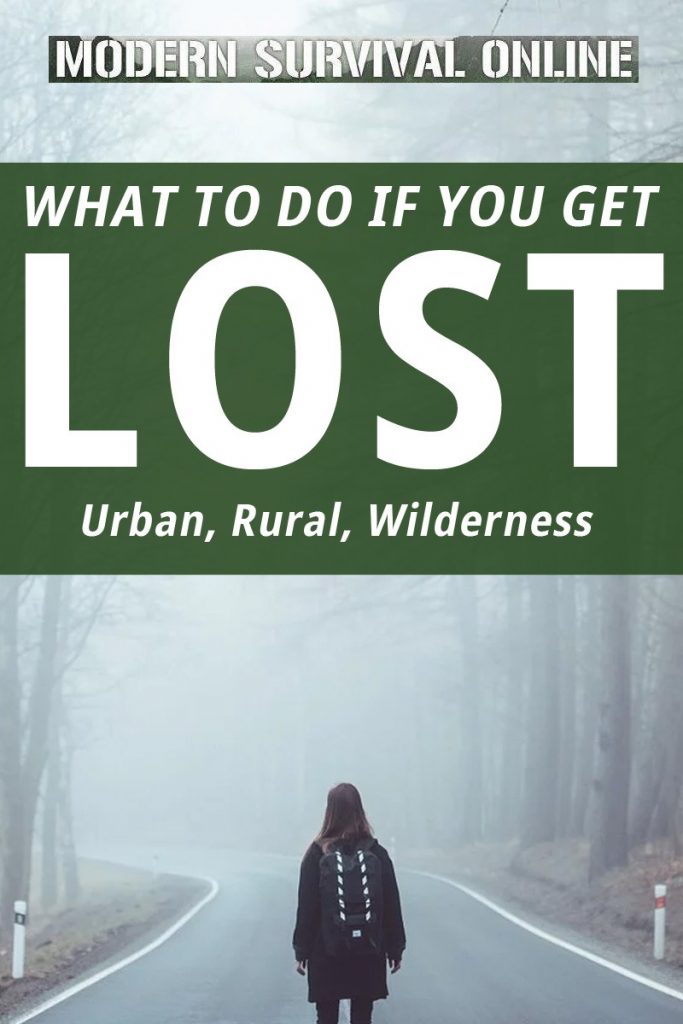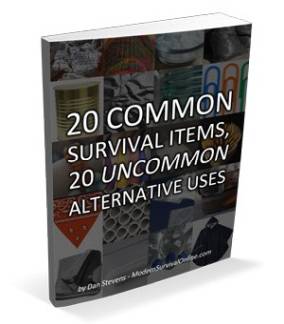I had moved to a new city about two weeks prior. I worked in another new city about 15 miles north. I had two established routes to and from work, but I wanted to find some shortcuts.
I took a turn off a main route, thinking it would intersect my street. I spent two hours driving in circles, my gas running out, having to pee, and growing increasingly angry.
I made a number of turns down dead end streets. I finally found my street and made it home. A number of years later, I am closely familiar with the area, and I often reflect on how close I was to home that night.
Getting lost means you are disoriented as to the location of your intended destination, or you are uncertain of your current location. It can be annoying and frustrating, to downright panic inducing, or fun and exciting.
Some of the information here also applies if you are oriented, but your vehicle breaks down, or on foot and injured.
Don’t Get Lost
When you visit an external link on this page and then make a purchase, I may earn a commission. Read my full advertising disclosure here.
Learn to navigate. It is much better to prevent getting lost in the first place. Knowing what to do if you are lost is damage control to one extent or another.
- Stay oriented: At this moment, without a compass or other aid, can you identify north, south, east, and west? In an urban area, do you keep track of street signs and buildings?
- In an urban or rural area, plot a course. Before you leave, map out your directions with Google Map, and print it out. I still like to use Jimapco paper maps, and post it notes. It is a familiar and comforting ritual to spread a map out, trace a route, and then put the directions on post it notes, or in a steno books. I refer to the written directions en route, and also record the time and distance to self-defined checkpoints. A checkpoint is a milestone in your route. It could be a particular intersection or building.
- Learn how to read a paper map. I suspect this is a dying skill. I don’t think it’s healthy or a good idea to rely exclusively on electronic devices. To be well-rounded, more skilled, and versatile, keep paper skills current.
- Use landmarks. What features in a urban, rural or wilderness area stand out? Landmarks can be synonymous with milestones.
- Use a GPS (Global Positioning System) Unit, but don’t rely on it exclusively.
- Compass: Learn how to read a compass.
- Look behind you. The purpose of this is to recognize your route on the way back. You can also leave a trail of electronic breadcrumbs. Video or take images of key transition points such a forks in the trail.
Be Prepared in Case Step One Fails
- Complacency and assumption are the mother and father of all screw-ups. Are you prepared for reasonable as well as some unreasonable eventualities? What is your EDC? Do you change your EDC based on travel and destination?
- Have a full tank of gas, water in your vehicle, and keep your vehicle well maintained.
- Keep yourself fueled, hydrated, and well maintained.
Factors to Consider When Traveling
- Are you on foot or in a vehicle?
- Alone or with a friend or a group?
- With a child?
- Are you a man or woman? (those are the only two options BTW).
- Are you fit and in good health, or sick or injured?
- Night or day?
- What are the current and imminent weather conditions.
- Your EDC and other gear you have available
- Do you have cash on hand/cards?
- Do you have a hand-held device or other means of communication/orientation, and service and adequate charge for your device? Don’t forget to carry a charger or batteries.
- Where are you lost, an urban, rural, or wilderness area?
- If you like to travel alone, precautions should be taken. If you are a woman, there are also some additional considerations. Before venturing out alone, here are my habits:
- I email three people informing them of my departure and estimated return time, and my itinerary, and the phone for the local PD.
- I leave three redundant voice mails to the same people with the above information.
- I make certain as possible my vehicle is in top shape, with the tank topped off.
- I have extra cash, three to six liters of water, and my BoB in my vehicle.
- I have my EDC and my Man-bag.
- I have a course plotted on paper, with post-it’s on the map.
- I have checked the weather along my route.
Change Your Mindset
Getting lost is not a nightmare or horror story unless you make it into one. Being lost is an adventure. Explore what is around the corner. You never know what you might find.
There is a difference between a tourist and a traveler. A tourist sticks to the well-known attractions, main roads, and the proverbial well-beaten path. A traveler tends to be more adventurous and an explorer.
What to Do if Lost in an Urban Environment
Urban areas are densely populated. Depending on what state you live in, you will refer to one city in your state as The City.
In New York State, the obvious choice in New York City. In an urban area, there will be multilane and elevated highways, long high bridges, dense traffic, and buildings, including skyscrapers.
There will be road signs everywhere, sometimes too numerous to track. Urban areas are packed with people on foot, bicycles, and motor vehicles. There will be crowds, lots of noise, and a miasma of smells, depending on where you are in the city and the time of day or night
Major cities will never sleep. Businesses, mostly supermarkets and convenience stores, will be open 24 hours a day, and bars and clubs into the early morning hours.
If you are in an unfamiliar city, or unfamiliar part of your own massive city, e.g., New York, Los Angeles, or Chicago, you can get lost. Don’t ever look like you are lost.
Pick a spot 50 or 100 meters ahead of you and walk to it like you have been there a hundred times, and it is your intended destination. A store is a good option. Once you get there orient yourself.
Do not look confused, hesitant, change direction within a few steps, look scared or uncertain, or look around. And whatever you do, don’t look up at the skyscrapers. That will mark you immediately as someone out of town.
Why is this so important? Because you will start looking like a good victim. The other feature of dense urban areas are full of bad guys. There are predators out hunting, and you do not want to look like their prey.
Chances are you will be able to orient yourself with a GPS, landmarks, or calling someone for directions. You can also ask a stranger/store employee for directions; though this can make you feel like a tool-bag.
This can also be a good time to find a café, sit and get a cup of coffee, and chill and orient yourself or make a phone call. This is not a big deal; just part of your trip. Unless you are in a very upscale neighborhood, it is ill-advised to knock on strangers doors in an urban area. Stick with store employees for directions, and do it discreetly enough where others don’t hear and butt in.
On a related note: don’t forget where you parked. If you are driving a rental, make certain you know what it looks like. This may sound obvious, but under stress, we default to what we are familiar with.
No sense automatically looking for the car 1500 miles away in your driveway or at an airport. Take an image of the freaking car if you have to.
What to Do if Lost in a Rural Area
Rural areas or the country are sparsely populated. It is unlikely to find buildings more than three stories high. There will be the ever-present convenience stores with gas pumps, and there may be a few big box stores here and there.
Some of the businesses will close as early as 5:00 PM, and it may be difficult to find a place open after 9:00 PM. Rural areas are mostly woods and farmland, with minimal development.
Homes are spread out and there may be a mile or three between neighbors. There will be mostly two lane roads, and some dirt or gravel roads. There will be rolling hills, winding roads, short bridges over creeks and streams, and maybe mountains to ascend and descend.
If you get lost in a rural area, you can again orient yourself with landmarks. Lakes, rivers, and mountains will be more likely, though you can use unique buildings as well.
If you come across an open store, you can ask for directions. You will be generally safer knocking on a door in a rural area than in a city but use caution. Move slow, smile, keep your hands in site, and give a lot of space.
What to Do if Lost a Wilderness Area
Wilderness areas or the woods are undeveloped. In the northeast and Pacific northwest, there will be hardwoods, pines, creeks, rivers, ponds, lakes, mountains, dense tree canopies, and wildlife.
In the continental United States, we have deserts in the southwest, that are hot in the day, but can get cold at night. There may be well-marked and travelled or minimal trails.
You may not encounter other people, or an encounter with someone else will be rare. It will be pitch black at night, but the moon and stars will be bright, and you will be able to see the Milky Way once your eyes adjust.
- Stay on trails. If necessary, you can backtrack.
- Do not daydream. Stay aware of your surroundings, landmarks, and stay oriented with compass and/or GPS checks every few minutes.
- Bring fluorescent tape,, and mark your trail. This is a good practice for beginners who venture into the wilderness, or even experienced outdoorsmen in new, unfamiliar terrain.
- Be prepared. This means you have well developed basic outdoor skills, and good quality clothing and other gear. This will give you confidence and help you stay calm if you do get disoriented. When I was a teen first going into wilderness areas, I always had at minimum a doubled Ziploc bag with the following items:
- 2 boxes water-resistant matches
- A candle stub
- A cigg lighter
- A snickers bar
- A tin of sardines
- A roll of life savers or some hard candies
- Toilet paper
- 15 feet of para-cord
- Socks
- A reflective mylar blanket
- Band-aids.
- A folding knife and Chapstick in my pants pocket.
- A compass in my jacket pocket.
If you get lost in a wilderness area, the recommendation I consistently heard growing up (1970’s & 1980’s) is to stay put and wait for rescue. This was also directed to a young teenager going into a remote wilderness area with six to eight men before GPS or cell phones.
If you are experienced in the outdoors, fit, and well equipped, you have a few hours of daylight, and the weather is decent, you may be able to re-orient yourself and find your way out.
Before you do anything, sit down, have some water or coffee and a snack (you have these items with you, yes?). Get calm and focused.
- STOP.
- Stay Calm. Don’t start running. Sit, hold still, and collect yourself.
- Think. What was the last familiar place you recall? Which direction were you travelling?
- Observe. Look around for anything familiar. Take inventory of your supplies. The latter can also contribute toward feeling calmer.
- Plan. Are you going to stay put or find your way out?
If you intend to walk out, start looking for the bright orange or green tape mentioned above that you have placed. Mark your current position with tape so you don’t walk in circles, note any landmarks, and look for the trail or the last familiar landmark before you got lost.
An overview of your position may coalesce in your head and you will be oriented again. There is also the old and often cited method of seeking high ground to orient yourself. I have doubts about this method; you may get even more turned around.
If you are sick or injured, it is dusk, or there is a snowstorm/freezing rain coming in, you will have to decide if you are going to wait for rescue or try to make your way out.
If you have a phone, radio, or other communication device, you can call for rescue. You may not have service in a wilderness area. This is where preparation is critical. If you have to/choose to stay put, can you make a shelter and fire?

What if Your Child Gets Lost?
Once again, focus on prevention and preparation.
- Have current photos of your child.
- Your child needs to know the full names of both parents, their phone, and address. I remember carrying a simple, homemade laminated ID when I was a child. It had my name, my parents names, and our phone and address on it. Make an ID for your child. Dog-tag style IDs are another option.
- Teach your child what to do if they get lost.
- Stay put if you get lost so parents can find you.
- How to make a phone call.
- How to ask for help in a safe manner. E.g., if you are in a store, look for someone who works there.
- If you are in a store, tell an employee. They can make an announcement, or check people exiting the store.
- If you can’t locate your child promptly, call the PD. Don’t hesitate on this.
Some of the above may also be applicable to an elderly relative with dementia.
Conclusion
Part of developing self -sufficiency and self-reliance is developing the skills of navigation, outdoor survival, and interpersonal communication skills.
A central theme in this article is prevention and preparation. Don’t get lost. Once you are lost, you are doing damage control.


Like what you read?
Then you're gonna love my free PDF, 20 common survival items, 20 uncommon survival uses for each. That's 400 total uses for these dirt-cheap little items!
We will not spam you.
i used to live out in the country now for the last 30 years i have lived in a medium sized city but as far as getting around goes as long as you know what roads run what way and around how far apart they are you can get get around ok and i learn IMMEDIATELY when i move to new area what roads run what way and how to get around